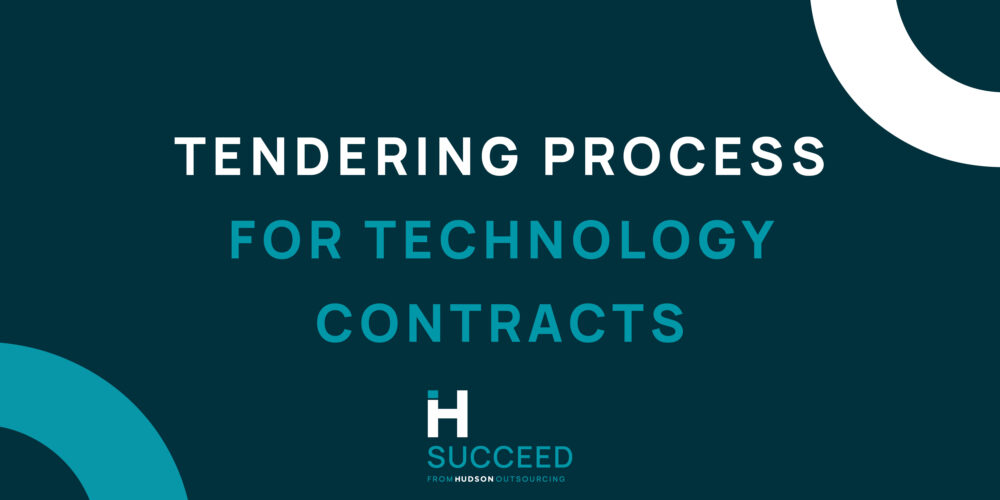Approaching the invitation to tender stage like a professional
[Last modified: July 2021]
An invitation to tender (ITT) is usually released when the buyer has shortlisted a group of appropriate suppliers. This most commonly follows a pre-qualifying exercise such as a PQQ, SQ or PAS91, depending on the industry/services required. Some buyers may publish an invitation to tender immediately, without a shortlisting round. However, during the tendering process for the public sector you should expect to submit a pre-qualifying application before receiving an ITT.
Making it to the invitation to tender stage is certainly cause for a small celebration. The buyer has seen potential in your business, and you have proven your capability (to some extent). They are interested to hear more from your business and now is your chance to impress them.
If you are new to tendering for contracts, don’t give up now! You have made it this far. When you receive the ITT documents, you should be prepared to feel a little overwhelmed. Especially if your business doesn’t have a team dedicated to responding to ITTs. It’s understandable to feel daunted by the work that may be required.
Our team has been bid writing for almost two decades. In that time, we have seen buyers ask for anything from 2,000 words to 50,000+. Not to mention supporting evidence, company policies, procedures, accreditations and CVs.
Don’t panic! Let’s break this down
-
First, take some time to digest the work involved
Before submitting your pre-qualifying response, you should have fully read and digested the specification. Therefore, you will already be familiar with the requirements of the contract. You may have been able to pre-empt some of the buyer’s requests based on this.
Take your time reading the questions, assess the required supporting evidence and compile a list of work to be completed.
-
Set internal deadlines
Gathering the evidence and information you need may require liaising with multiple departments, depending on the size of your business. Next to each task to complete, set a deadline for yourself and anyone involved. This will avoid last-minute panicking and rushing to produce documents.
-
Reach out for support before it’s too late
If you don’t have the in-house resources to produce the work required to a high standard, consider outsourcing – in advance. You may want to try and complete the bid yourself but leave enough time to source help if required.
Don’t wait until two days before the deadline to decide that you need a Bid Writer. This will mean risking submitting a rushed bid, or not submitting anything at all.
Our “How to work more effectively with your Bid Writer” blog will help you with things to consider before outsourcing. This includes timescales, word counts and the evidence you can produce.
With the above in mind, let’s explore our top three tips for impressing buyers at the invitation to tender stage.
-
Keep asking yourself ‘how’ and ‘why’
When responding to the buyer’s questions, consider;
- How does what I’m saying positively impact the buyer?
- Why will my responses persuade the buyer to choose my organisation over my competitors?
Remember, you are not the only business bidding for this contract. Even if you know the buyer or have established a previous working relationship, this doesn’t guarantee a win. So often we hear businesses say, ‘we know we’ll win because we know the buyer’. We would strongly advise against relying on this and spend time creating high-quality, detailed responses.
For example, if a buyer requires domiciliary care services, they may ask something along the lines of:
“How will your organisation ensure the safety of the service users throughout the contract?”
Here, it is not enough to simply say that you have experience and will ensure patients are safe. You must demonstrate your competence. Provide a detailed response, outlining your safety policies and make the buyer feel confident in your ability.
-
Put yourself in the buyer’s shoes
Imagine yourself as the buyer. They are not only evaluating your invitation to tender responses but several others. When bidding for the same contract, the responses will understandably begin to sound very similar. It’s important to provide your information concisely. Provide detailed responses but don’t allow yourself to go off on a tangent about how wonderful your business is.
When writing your concise responses, you should also be aware of your tone. You want to sound assertive and sure of your answers. Stay away from words such as ‘we could’ and ‘we might’ and replace them with ‘we will’ and ‘we are’.
If you were the buyer, you would undoubtedly choose the supplier who fills you with confidence. Don’t leave any room for doubt in your invitation to tender responses.
-
Evidence, evidence, evidence
If you follow our Insight Series, you will know that we always reference ‘evidence’ in our blogs. That’s because evidencing your capability is crucial. It will mean the difference between a win and an unsuccessful submission.
In public sector tendering, we always advise that buyers often ask to see at least three relevant case studies. If you know you can’t provide three examples of similar work, you should probably reconsider bidding. Our ‘to bid or not to bid’ blog can help you make this decision.
Case studies allow the buyer to assess your company’s competency in context. They can see how your organisation responded to similar scenarios that you could be faced with on this contract. An effective case study will:
- Demonstrate that you have experience in delivering similar work;
- Detail how you overcame obstacles and responded to challenges;
- Provide information about the lessons you learnt whilst delivering the contract, and;
- Showcase impressive results.
Should you be tendering for work now?
We know some businesses put tendering on hold in December, until the new year. However, we always advise tendering for contracts, while you are still delivering work. This means that you can build a pipeline and secure income for the future.
After the challenges most businesses have faced in 2020, we are advising our clients to schedule their bid work early. They can then get a head start on the new year and make up for lost time.
Do you need support with an ITT?
We know that most businesses don’t have endless resources to dedicate to tendering. In order to be successful, you will need skilled writers with experience of how to win a tender.
If you need extra support, our team are here to help. At Hudson Succeed, we have been helping businesses to grow for almost two decades. Our team of multi-disciplinary Bid Writers have helped organisations in a variety of industries to see success. Their experience includes;
Our Bid Writers proudly hold an 87% success rate and they are trusted by over 700 businesses globally. Get in touch for a free consultation.
Don’t just take our word for it, see what our clients have to say
Could not recommend higher”
– Nick Steiert, Managing Director at Invasion Ltd.
We are thrilled to have been successful for all 3 pieces of work.”
– Matthew Meanie, Managing Director at MJ Support Staffing.
It was a pleasure to work with Hudson and we look forward to collaborating in the future.”
– Dave King, Director at Imagine You Can.
With such a tight deadline, we could not have done this without Hudson.”
– Fred Kivumbi, Managing Director at Care Solutions Recruitment Agency.
We would highly recommend Hudson and look forward to future endeavours together.”
– Nick Sheehan, Sales Director at iLine Technologies.
We would highly recommend Hudson to any company who require bid support of any kind!”
– Samantha Reid, Director at APM Cleaning Ltd.
Find more client testimonials.
Stay tuned for the final part of our Getting Ready Series. Our next blog will explore the role of a critical friend and how this can help your business.
Find more helpful tips and advice in our blogs. We cover topics including:










